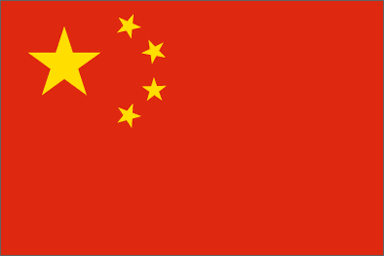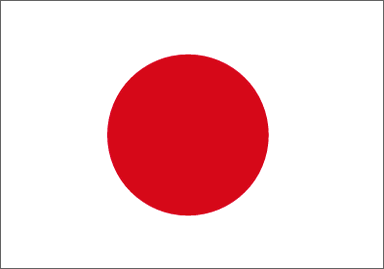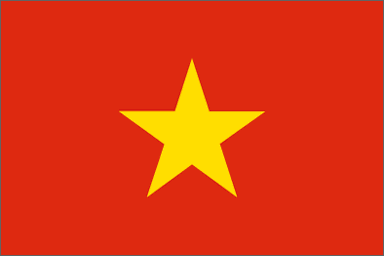Wettbewerb erfolgreich beendet
2023-05-18
Kategorie: Unternehmensnachrichten
On September 9th, the finals of the 27th National "Nano Star" Innovation and Entrepreneurship Competition, the highest innovation competition in the field of nanotechnology in China, ended successfully in Huangpu District and Guangzhou High-tech Zone. The nano-optical device project team led by Dr. Li Xiaojun of our institute won the first prize of the Future Enterprise Group!
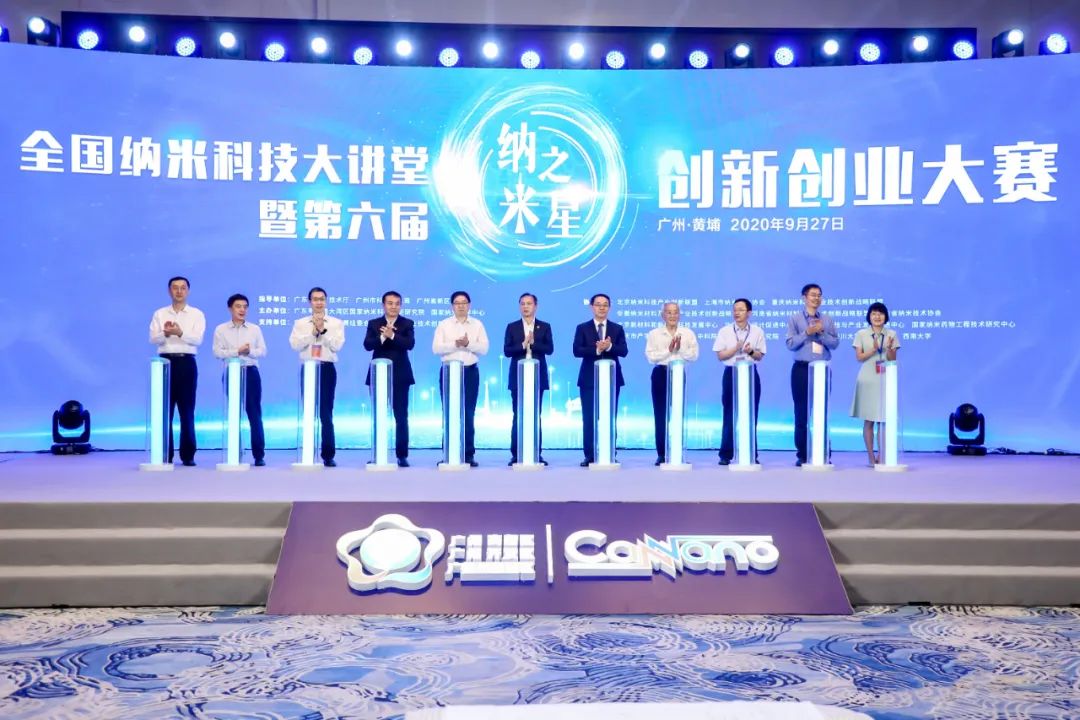
│Contest Launch Ceremony│
After fierce competition, 29 projects were finally won by Guangzhou Jinci Haina New Material Technology Co., Ltd. and the nano-optical device project team respectively, winning the crowns of the innovation enterprise group and the future enterprise group.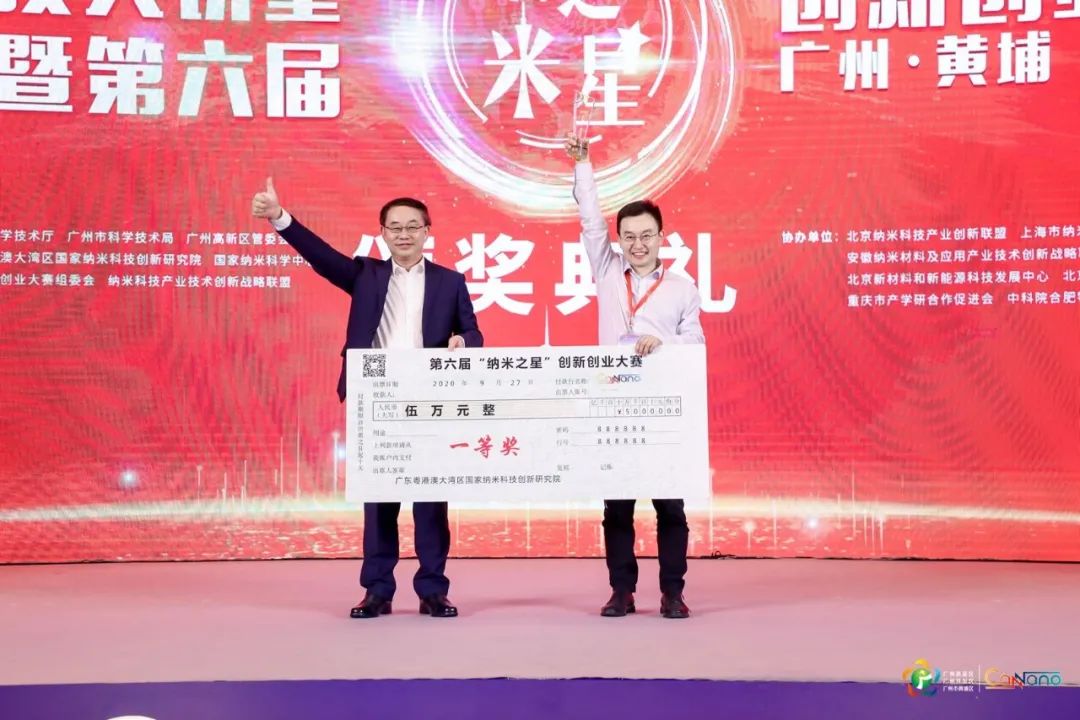 │Future Enterprise Group First Prize│Nano-optics project team team
│Future Enterprise Group First Prize│Nano-optics project team team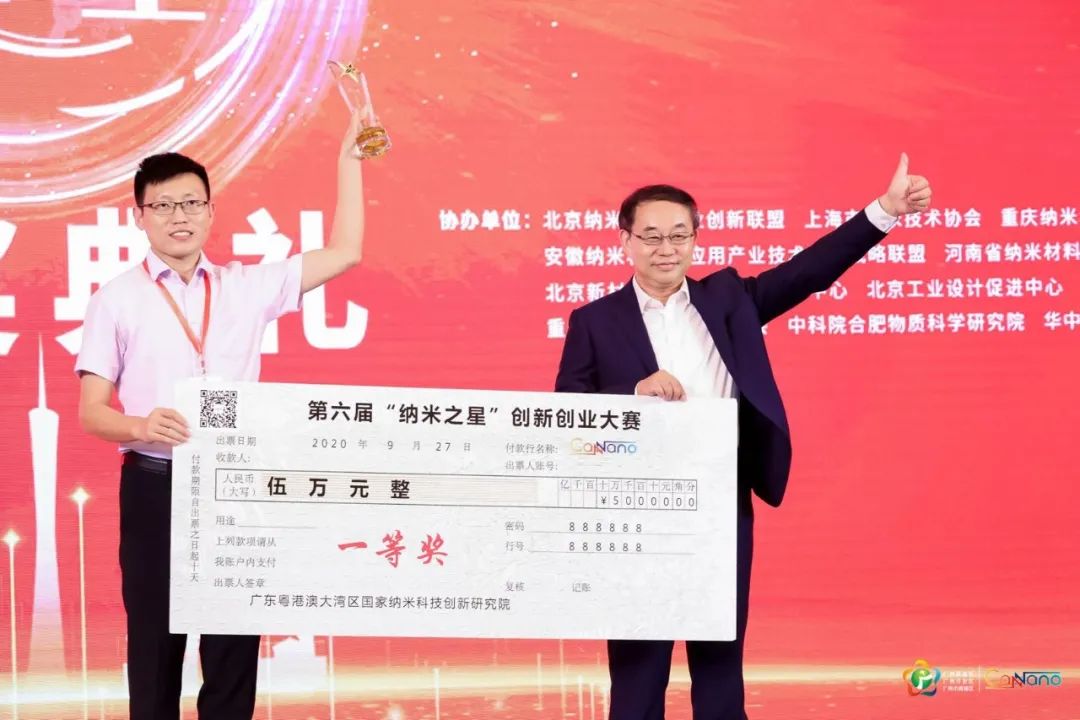 │Innovative Enterprise Group First Prize│Guangzhou Jinci Haina New Material Technology Co., Ltd
│Innovative Enterprise Group First Prize│Guangzhou Jinci Haina New Material Technology Co., Ltd
The event looks at WhampoaScientific research achievements "transform" into venture capitalThe "Nano Star" Innovation and Entrepreneurship Competition is guided by the Department of Science and Technology of Guangdong Province, the Guangzhou Municipal Science and Technology Bureau, and the Administrative Committee of Guangzhou High-tech Zone, co-sponsored by the Guangdong-Hong Kong-Macao Greater Bay Area National Nanotechnology Innovation Institute (hereinafter referred to as "Guangna"), and the National Nanoscience Center, and supported by the Nanotechnology Industry Technology Innovation Strategic Alliance.The competition aims to drive and discover a group of nanotechnology innovation and entrepreneurship teams with outstanding development potential in terms of technical foundation, team composition and market prospects, promote the transfer and transformation of nanotechnology achievements, and provide assistance for the development of the nano industry.
Zhao Yuliang, academician of the Chinese Academy of Sciences, academician of the Academy of Sciences for Developing Countries, president of the Academy of Guangxi and director of the National Center for Nanoscience, Gao Song, academician of the Chinese Academy of Sciences, academician of the Academy of Sciences for Developing Countries, president of South China University of Technology, academician of the Chinese Academy of Sciences, academician of the Academy of Sciences for Developing Countries, director of the Advanced Carbon Materials Research Department of Shenyang National (Joint) Laboratory of Materials Science, director of the Laboratory of Low-dimensional Materials and Devices of Tsinghua-Berkeley Shenzhen College, Cheng Huiming, academician of the Chinese Academy of Sciences, academician of the Academy of Sciences for Developing Countries, Professor Xie Yi of the School of Chemistry and Materials Science of University of Science and Technology of China and other four academicians attended the competition.
Since the registration and launch of the National "Nano Star" Innovation and Entrepreneurship Competition in April, it has attracted the attention of many entrepreneurs in the field of nanotechnology, attracting more than 4 projects from 6 divisions in Beijing, Yangtze River Delta, Pearl River Delta, Western China, Hubei and Anhui, involving hot sectors in the nano field, such as nano devices, nano manufacturing, nano health and environment, fully demonstrating the "hard technology" entrepreneurial characteristics of technology driven, ideal traction and rational layout in the nano field. After the preliminary round and final of the division, a total of 200 outstanding projects were selected to be shortlisted for the finals.
In addition to the first, second and third prizes of the Future Enterprise Group and the Innovation Enterprise Group, the competition also awarded the special awards of "Technology Leadership", "Investment Value" and "Business Model" according to the excellent performance of the participating projects in terms of technology, value and business operation.
Different from previous competitions, this year's "Nano Star" competition companies or teams showed two highlights:One of the highlights is the significant increase in the number of projects involving information technology.Nearly half of the 29 projects in the finals are related to a new generation of information technology, including many subversive technologies that change human information perception and interaction such as the "holographic diffraction waveguide display device" project of the nano optical device project team, which has completed breakthrough key technology research and development in many directions such as nano grating design, cutting-edge nano processing and systematic development.The second highlight is that the research and development and products for the "stuck neck" technology have increased significantly.
In addition to the "holographic diffraction waveguide display device" project team positioned as the creator of "next-generation display technology", a number of projects covering core technology fields such as high-performance magnetic cores, organic semiconductors, high-performance composite materials, high-energy density storage materials and devices have emerged in the competition, and more and more enterprises and entrepreneurial teams take breaking through the blockade of core technologies as their own responsibility, and use nanotechnology to empower technology upgrading and industrial development.
"Technology" Docking "Industry"Open up the key links of nanotechnology transformation"After more than 20 years of development, China's nanotechnology has made great progress in basic research, and some fields are at the forefront of the world and have accumulated a large number of achievements, but most of these achievements still stay in papers and patents, and have not been transformed into real technologies and products." Zhao Yuliang, head of the organizer, president of the Guangxi Institute, director of the National Center for Nanoscience and academician of the Chinese Academy of Sciences, said.The urgent problem that needs to be solved in the future of China's nanoscience and technology community is how to strengthen the integration of basic research and industry, and while continuing to carry out in-depth scientific research, we should also continue to strengthen the transformation and application of achievements.
Through project training, roadshow display, resource matching and other means, the competition realizes the deep integration of talents, technology, industry, capital and other elements, directly transforms scientific and technological advantages into entrepreneurial resources and development power, promotes the transfer and transformation of nanoscience and technology achievements, and promotes the development of China's nanotechnology industry.
The three academicians Gao Song, Cheng Huiming and Xie Yi gave keynote speeches on the topics of "Serving Social and Economic Development and Focusing on Cultivating Industrial Leaders", "Graphene and Two-Dimensional Materials: Preparation and Application", "Interface Behavior Law of Two-dimensional Material Table and Intelligent Inorganic Thermal Protection under Thermal Field".Nanotechnology is a multi-field interdisciplinary discipline with high integration with the IAB (New Generation Information Technology, Artificial Intelligence, Biomedicine) and NEM (New Energy, New Materials) industries laid out in Guangzhou. For example, in the field of artificial intelligence, the core technology of sensors includes micro-nano device design and processing, sensitive materials, and the application of nanotechnology.
Empower the industrialization of nanotechnologyCreate a "Huangpu acceleration" of industrial agglomerationAs the highest competition in the field of nanotechnology in China, the "Nano Star" Innovation and Entrepreneurship Competition has been successfully held for the sixth time. Starting this year, the finals of the competition will be settled in Huangpu District and Guangzhou High-tech Zone, which will help promote the transformation and landing of a number of outstanding nanotechnology achievements in the Guangdong-Hong Kong-Macao Greater Bay Area.
In recent years, Huangpu District and Guangzhou High-tech Zone have anchored the direction of "innovation", fought the battle of key core technologies, created more original achievements from 0 to 1, and promoted the industrialization of more "from 1 to 100" achievements. In line with the world's top research centers, the "Huangpu Laboratory" was established in Guangzhou Science City, and the "Science and Technology Whampoa Military Academy" was built into the strategic force of the Guangdong-Hong Kong-Macao Greater Bay Area and even the national innovation system, so as to enhance the energy level of world-class advanced manufacturing clusters and improve the innovation and entrepreneurship ecosystem.
Kona-in
As a core component of Whampoa Laboratory, the Institute was established in December 2019. As a new type of R&D institution jointly built by the National Nanoscience Center and Guangzhou High-tech Zone, Guangna Institute is positioned as a world-class nanotechnology transformation base, focusing on level 12-4 of the scientific and technological innovation chain, creating a complete scientific and technological innovation chain of level 6-1, and forming a synchronous and coordinated development mechanism of the upper, middle and lower reaches of the innovation chain.
"China Nano Valley"
Located in the Sino-Singapore Guangzhou Knowledge City, "China Nano Valley" is a key nano industry cluster area in the district, which will be built in phases according to the "one district, four parks and one center" model, including the Nano Manufacturing and Intelligent Technology Industrial Park, the Nano Medical and Health Technology Industrial Park, the Nano Energy and Environmental Technology Industrial Park, and the Precision Nano Technology and Metamaterials Industrial Park.
By introducing top teams from the Chinese Academy of Sciences and universities to cultivate and incubate a number of high-tech innovative enterprises, "China Nano Valley" will lead the construction of the Guangdong-Hong Kong-Macao Greater Bay Area into a full-chain innovation system of China's nanotechnology from basic research to applied technology research and development to industrial transfer and transformation, and form a nanotechnology industry agglomeration area and radiation effect circle.
In order to promote the layout of the nano industry and attract talents to settle down, Guangzhou High-tech Zone specially issued the "Measures for Promoting the Development of the Nano Industry" (referred to as "Nano 10"), covering R&D platform incentives, financing support incentives, major project incentives, technology research and development and industrialization, "Nano Star" competition awards, office space subsidies, major promotion and exchange subsidies and other aspects, and comprehensively support talents, projects and enterprises in the field of nanotechnology to take root and develop in Huangpu.
"Huangpu District has gathered many top scientific research institutes, which can communicate with each other and have a good research and development foundation. At the same time, the policy of high-tech technology support is strong and pragmatic, and we are working hard to fight for the relevant incentives and support policies stipulated in the 'Nano 10 Article'. Li Xiaojun, the head of the nano-optical device project team in the project team participating in this final, previously expressed optimism about the prospects of Huangpu District and Guangzhou High-tech Zone in the development of the nano industry after winning the first prize of the Future Enterprise Group of the Pearl River Delta Division.It is reported that from 2021, the "Nano Star" competition will be included in the professional competition of the China Innovation and Entrepreneurship Competition, which will be another important national event hosted by Guangzhou High-tech Zone since the national competition of the biomedical industry.This opportunity will further enhance the attraction and cohesion of entrepreneurs and talents in nanotechnology and related fields, and promote a group of talents in the field of nanotechnology to choose the Guangdong-Hong Kong-Macao Greater Bay Area.Guangzhou High-tech Zone will also continue to optimize the business environment and entrepreneurship policies, provide in-depth and practical entrepreneurial services, gather talents in a more active, open and effective way, and help build a talent highland in the Greater Bay Area and an international science and technology innovation center.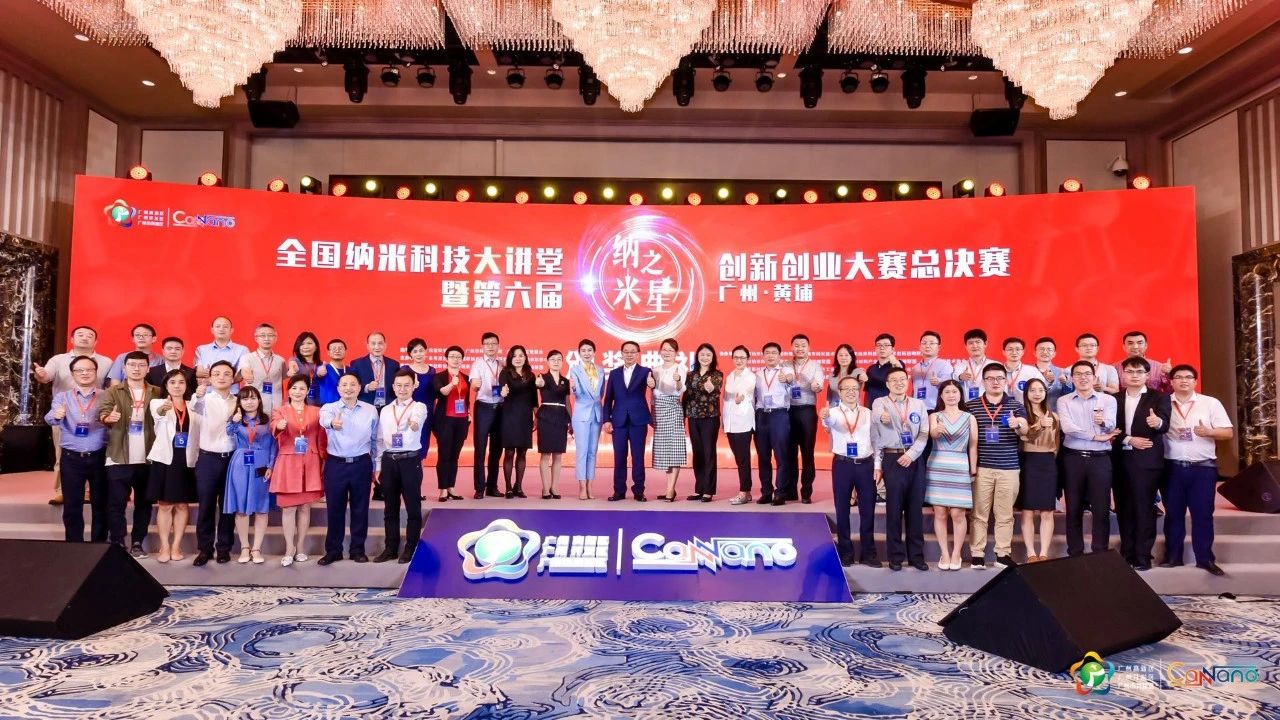
NEWS
Wettbewerb erfolgreich beendet
2023-05-18
Kontakt
Tel : +86-20-37720102
Cell : +86-13392672318
Email : info@jchncores.com
WhatsApp : +86-15986765253
Adresse: No.18, Suida St. Huangpu District, Guangzhou
Website : www.jchncores.com
Copyright 2023 JCHN Cores
